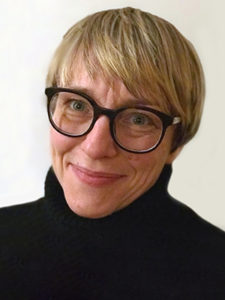
Experts from the United Kingdom and North America will take advantage of the differences in perspective that geography can bring in an ARHP clinical practice session on Tuesday, titled Pediatric Transition Approaches on Both Sides of the Pond.
The session, from 2:30 to 4:00 pm in Room W184d, will discuss the importance of the transition from pediatric to adult services for adolescents and will look at the differences in rheumatologists’ approaches in the U.K. compared with North America.
Rachel Tattersall, MD, an Adolescent and Adult Rheumatology Consultant at Sheffield Children’s Hospital and Sheffield Teaching Hospitals, Sheffield, England, will begin with a presentation titled “What is Special About Adolescence and How to Meet Young People’s Needs in Transition.”
“Many—probably most—children with rheumatologic disorders will have lifelong problems associated with their conditions,” Dr. Tattersall said. “And yet, we have a convention where we train pediatric rheumatologists to look after children and adult rheumatologists to look after adults. So children and young people often experience gaps between pediatric and adult services.”
This session aims to offer practical, developmentally appropriate strategies to bridge those gaps.
“In the United States and North America, it’s common for pediatricians to look after young people up to the age 21 or later. Whereas in Europe, it’s more common for the pediatrician to stop their input about age 16 to 18,” Dr. Tattersall said. “The point of transition is to have a formal commitment of services to work together—whether you’re a pediatric professional or an adult professional—to make sure young people with rheumatic disease have a seamless transfer from children’s services to adult services, whether that’s at age 16 or 21.”
Dr. Tattersall will focus on what makes adolescents special. She’ll discuss the evidence of the neurocognitive basis of adolescence as a distinct developmental stage and will review the elements of an effective transition.
“This is not a big scary thing,” she said. “I think sometimes, particularly for adult rheumatologists, it’s something some clinicians don’t want to deal with. They perceive teenagers as being difficult, or fear adolescents won’t talk or be honest with them. I’ll make it really clear that there are loads of positives that come with working with young people and doing transition well—not the least of which is that they’ll have their arthritis or lupus or whatever the disease is really well looked after and therefore they don’t run into trouble later on.”
Dr. Tattersall categorizes adolescents as those from 10 to 19 and young adults from 20 to 24.
“What’s amazing about that period from age 10 to 24 is that the brain develops hugely during that time,” she said. “Obviously, you can see the physical body change remarkably during that time as well, but the brain develops remarkably, too. However, it often lags behind the physical body, so young people often look like adults and think like children. So you have to pitch your services differently if you’re looking at a teenager. You have to work with adolescents and young adults differently.”
Dr. Tattersall said for clinicians treating adolescents, being mindful of the way their brains work can shift the perception from “Teenagers are difficult” to “I’m going to ask this young person questions in a way that allows them to talk freely, and then I’m going to be able to engage with them.”
“If you can remember what’s special about the way the adolescent brain develops, then you can provide them with great care,” she said. “Unfortunately, transition isn’t done well in many places, and young people who fall through the gaps are at risk of their disease accelerating and causing damage, which is why this topic is so important.”
Following Dr. Tattersall’s talk, Ruth Wyllie, a Clinical Nurse Specialist in Pediatric Rheumatology at the National Health Service in the United Kingdom, will present “Tools for Transition: How Can We Help a Young Person Transfer from Pediatric to Adult Care?” Wyllie will offer concrete, practical strategies for young people and their families.
Alejandra “Alex” Hernandez, Clinical Manager at Texas Scottish Rite Hospital for Children, Dallas, TX, will conclude the session with her presentation “Opportunities for Improvement Within the U.S.” She will address the barriers and difficulties with transition in North America and how clinics can overcome those obstacles.
